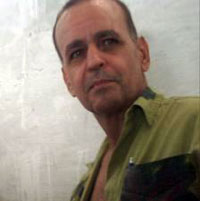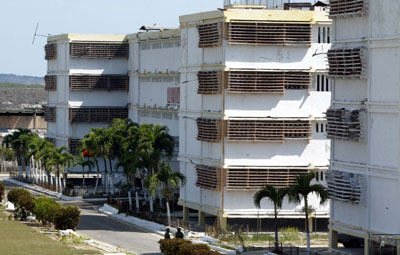
Assisting journalists forced to flee censorship
CPJ’s Journalist Assistance Program supports journalists who cannot be helped by advocacy alone. In 2011, we assisted 171 journalists worldwide. Almost a fourth came from countries that made CPJ’s Most Censored list. Eight journalists from Eritrea, five from Syria, six from Cuba, and a whopping 20 from Iran sought our help after being forced to…

Expelled from Cuba jails, journalists languish in Spain
In 2010, following midsummer negotiations between the Catholic Church and the government of President Raúl Castro, Cuban authorities began releasing imprisoned journalists, sending them into forced exile with their families. In April 2011, the last of more than 20 journalists arrived in Spain. They had been granted liberty and respite, and were promised support from…

Cubans exiled in Spain: Integration or disintegration?
Desperate realities call for hope. It is not just a game of words, because you don’t play with hunger and the future (my own and my family’s). It is about going deeper into another version of circumstances. And seeing the rainbow where others see a gloomy sun and a stubborn and relentless rain.I am writing…

Remembering Cuba’s Du Bouchet Hernández
On Wednesday morning, exiled Cuban journalist Albert Santiago Du Bouchet Hernández took his own life, according to reports in the Cuban exiled media. He was the last of more than 20 Cuban journalists to be released from prison and sent to Spain following July 2010 talks between the government of Cuban President Raúl Castro and…
Attacks on the Press in 2011: State Media As Anti-Media Tool
In some Latin American countries, state-owned media are used not only for propaganda but as platforms to smear critics, including journalists. Some elected leaders have even invested in large multimedia holdings to further their agendas. By Carlos Lauría
Attacks on the Press in 2011: Cuba
Official repression in Cuba remained the most intense in the hemisphere. Although the last of the 29 independent journalists imprisoned in the 2003 Black Spring crackdown was released in April, the government’s restrictive practices persisted. Official censorship was codified in law and closely enforced. The government persecuted critical journalists with arbitrary arrests, short-term detentions, beatings,…

Rousseff quiet as Cuban blogger denied travel to Brazil
The response from Cuban officials did not take anyone by surprise. Prominent Cuban blogger Yoani Sánchez had been, once again, denied permission to leave her country after she was granted a visa by the Brazilian Embassy in January to attend a film festival. “I feel like a hostage kidnapped by someone who doesn’t listen nor…

Recalling Laura Pollán, leader of Cuba’s Ladies in White
Cuban human rights defender Laura Pollán, who died Friday from respiratory complications at a Havana hospital, fought a mighty battle against the Cuban government for almost a decade. Pollán, 63, leaves behind her husband, the award-winning independent journalist Héctor Maseda Gutiérrez, and a daughter. She also leaves a legacy of determination, courage, and creativity. Her…
Cuba pulls veteran correspondent’s credentials
New York, September 7, 2011–The Committee to Protect Journalists condemns the Cuban government’s decision to not renew press credentials held by a 20-year veteran correspondent for the Spanish daily El País and radio network Cadena SER. Mauricio Vicent, whose access to official events had been restricted by the government for the past year, is now…

Assisting journalists in Cuba: Hurdles in prison and beyond
In mid-2006, CPJ’s Journalist Assistance program began sending regular remittances to the families of independent Cuban journalists in prison. By CPJ’s count, of the 29 journalists jailed during a massive crackdown in 2003, 24 were still in prison at the time–making Cuba the world’s second-worst jailer of journalists in the world. The remittances, sent monthly,…